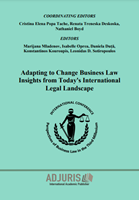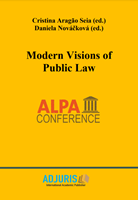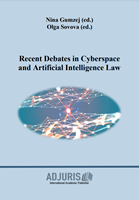
Peculiarities and Controversies Regarding the Credit (Financing) Agreement
From the perspective of business law, the concept of "credit" has the following three valences, namely: the claim (amount of money/cash benefits), the payment term and the creditor's confidence in the debtor that the latter will honor its payment obligation when due. Thus, the financial-banking products existing on the market have a rather varied and complex content and structure. In order to satisfy the interests and needs of both categories of subjects, the legislator has established a series of rules, as protective measures, for each category. This type of credit/financing is used, both in social, selling, common law relations, as well as in legal business relationships, between professional traders. The present study aims to capture an analysis of the particularities of the credit agreement from the perspective of the two categories, consumers and professionals, as well as of the existing regulatory framework. For these reasons, we will discuss the primary legislation, as well as the secondary legislation, applicable in this field.
More...

